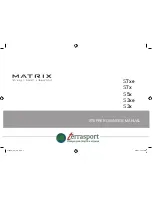
– 16 –
4-5. Adjusting the thread tension
(1) Adjusting the needle thread tension
Thread tension controller No. 1
❶
When the tension disk of thread tension controller
No. 2
❸
is loosened, such a small tension as to
control the thread trimmer has to remain. The re-
maining tension is produced by tension controller
❶
. It is possible to determine the length of thread
trailing from the needle after automatic thread
trimming by adjusting nut
❷
of the thread tension
controller. The length of thread trailing from the
needle is reduced by turning nut
❷
clockwise (+).
It is increased by turning nut
❷
counterclockwise
(-).
Thread tension controller No. 2
❸
The tension (applied to the thread coming from
the needle) controlled with thread tension con-
troller No. 2
❸
should be set as low as possible
so that the needle thread and bobbin thread are
interlaced together at the center of material thick-
ness (Fig. A). If the thread tension is excessively
high when sewing a light-weight material, the ma-
terial may become wrinkled or thread may break.
The tension applied to the thread coming from the
needle is increased by turning nut
❹
clockwise
(+).
It is decreased by turning nut
❹
counterclockwise
(-).
Fig. A: Threads are interlaced together accurately at
the center of material thickness.
Fig. B: Needle thread tension is too low or bobbin
thread tension is too high.
Fig. C: Needle thread tension is too high or bobbin
thread tension is too low.
(2) Adjusting the bobbin thread tension
1) Turn tension adjusting screw
❺
clockwise (in
direction
A
) to increase or counterclockwise (in
direction
B
) to reduce the bobbin thread tension.
Recommended value: Approximately 25 g
The bobbin case will come down slowly by its
dead weight by holding it as illustrated in the fig
-
ure.
A
B
❺
Fig. A
Fig. B
Fig. C
❶
❶
❷
❷
❸
❸
❹
❹
















































